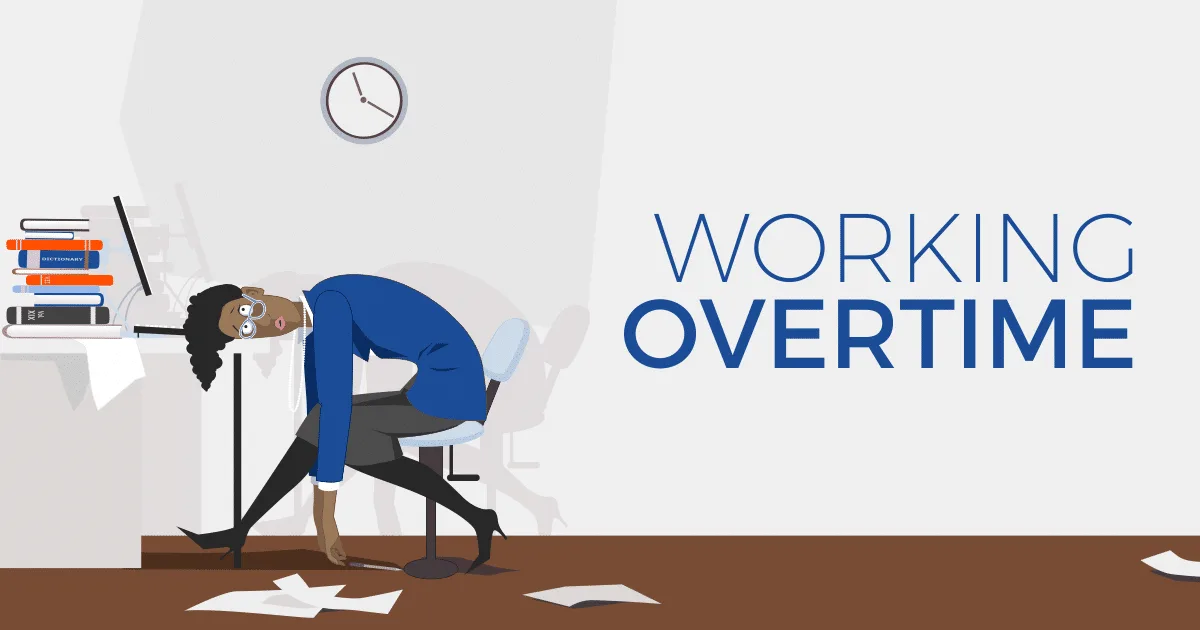In today’s complex world, a plethora of erroneous beliefs circulates regarding workers’ rights and protections. These misunderstandings can lead to confusion and anxiety among employees and employers alike. It is essential to navigate through this sea of misinformation to uncover the truth.
Every individual deserves to be informed and empowered, yet many find themselves relying on outdated or incorrect information. Such inaccuracies can undermine the intended benefits of worker protections, leading to unintended consequences. Addressing these fallacies is crucial for fostering a fair and equitable workplace.
To cultivate a more accurate understanding, it is vital to debunk popular myths that often surface in discussions about workplace practices. By shedding light on these misconceptions, we can pave the way for a more informed community that champions rights and responsibilities.
Common Myths About Employee Rights
Understanding one’s entitlements in a workplace can often be clouded by misconceptions. Many individuals harbor inaccuracies regarding their privileges as workers, which can lead to confusion and potential exploitation. It is essential to clarify these misunderstandings to promote a fair and equitable work environment.

Myth 1: Employees Cannot Be Fired Without Cause
One prevalent belief is that employees are always protected from termination without a valid reason. While certain protections do exist, especially for those in unionized positions or under specific contracts, many workers are employed “at will.” This means they can be dismissed for almost any reason, as long as it does not violate discrimination protections.
Myth 2: Overtime Compensation Is Optional
Another common fallacy is that employers have the discretion to decide whether or not to pay overtime. In reality, under specific criteria outlined by state and federal guidelines, most employees are entitled to receive overtime pay for hours worked beyond the standard 40-hour workweek. Employers are legally obliged to compensate eligible workers accordingly.
Misunderstandings About Overtime Pay
There are numerous common myths that surround the concept of additional compensation for hours worked beyond the standard workweek. These misconceptions can lead to confusion for both employees and employers, often resulting in potential disputes or misunderstandings about payment practices.
One prevalent myth is the belief that all employees automatically qualify for extra pay after a certain number of hours. In reality, eligibility for overtime can vary based on several factors, including individual job duties and salary thresholds.
| Myth | Fact |
|---|---|
| All workers receive overtime pay after 40 hours. | Only non-exempt employees are entitled to overtime pay; exempt employees do not qualify based on their job classification. |
| Employees can waive their right to overtime pay. | Workers generally cannot give up their right to overtime; this protection is mandated by regulations. |
| Comp time can substitute for overtime pay. | Compensatory time off is not permissible in private sector employment; payment for overtime is required. |
| Employers can set their own definitions for overtime. | Overtime definitions are determined by federal and state regulations, which must be adhered to by employers. |
Clearing up these common misconceptions is crucial for fostering a fair and informed work environment, empowering individuals to understand their rights and responsibilities regarding extra compensation.
Unrealistic Expectations of Job Security
Many individuals enter the workforce with a belief that job stability is not just possible, but guaranteed. This mindset can lead to disappointment as the dynamics of employment evolve. Factors such as technological advancements, market fluctuations, and business restructuring play a significant role in shaping career longevity. Understanding the realities surrounding job permanence is essential for navigating today’s professional landscape.
The Illusion of Permanent Employment
In an ever-changing economy, the notion of a lifelong position within one organization is increasingly rare. While some industries may still offer the possibility of extended tenures, the majority face a reality where flexibility and adaptability are crucial. Employees must cultivate a mindset that prioritizes skill development and career resilience over the expectation of unwavering stability.
Adapting to Change
Facing the unpredictable nature of today’s job market requires a proactive approach. Embracing lifelong learning and diversifying skill sets can empower individuals to thrive in various environments. By acknowledging the potential for change, workers can position themselves to seize new opportunities and mitigate the impact of unexpected job transitions.
False Beliefs Regarding Paid Leave
There are widespread misconceptions surrounding the topic of paid leave that can lead to significant misunderstandings. Many individuals assume that such benefits are either universally guaranteed or non-existent, which can create confusion in the workplace. This section aims to clarify these inaccuracies and shed light on the true nature of paid leave provisions.
Common Misconceptions
One prevalent notion is that all employees automatically receive paid leave as a standard entitlement, regardless of their job type or company policies. In reality, the availability and duration of paid leave often vary significantly between organizations and regions. Many companies offer their own unique plans, which may not align with public expectations.
The Impact of Industry Standards
Another fallacy is the belief that certain sectors, like technology or finance, provide generous paid leave options for all workers. While some industries may indeed set higher standards, it does not mean every employer within those fields adheres to the same approach. It is crucial for individuals to research their specific workplace policies and understand their rights.
Understanding these points helps clarify the realities surrounding paid time off. Ignoring these facts can lead to dissatisfaction and misplaced expectations among employees.
Inaccuracies About Employment Contracts
There are numerous misconceptions surrounding the nature and significance of employment agreements that can lead to confusion and unwarranted assumptions. Understanding these inaccuracies is crucial for both employers and employees to foster healthy work relationships and ensure compliance with applicable expectations.
Assumptions on Duration and Terminability
One prevalent fallacy is the belief that all contracts remain valid indefinitely once signed. In reality, many agreements include specific terms regarding duration and conditions under which they can be terminated. Failure to grasp this can result in unnecessary disputes, particularly when parties assume an agreement is permanent without recognizing stipulated expiration or termination clauses.
Misunderstandings Regarding Benefits
Another common confusion relates to the idea that all employment documents guarantee certain benefits, such as health insurance or paid leave. In many instances, the contract may outline that such benefits are contingent and subject to eligibility criteria or company policies. Employees must thoroughly review their agreements to understand what benefits are guaranteed and under what circumstances they may be altered.
Misperceptions on Workplace Discrimination
A myriad of misunderstandings surrounds the topic of discrimination in professional settings, creating confusion among employees and employers alike. These inaccuracies can lead to detrimental consequences for individuals and the work environment as a whole.
Several common fallacies persist regarding discrimination that warrant clarification:
- Only Certain Groups Are Protected: Many individuals believe that only specific demographics are shielded from discrimination. In reality, laws encompass a broader range of characteristics, including age, disability, gender identity, and more.
- Discrimination Is Only Overt: There is often a misconception that discriminatory practices are always blatant. However, subtle forms of bias, such as microaggressions, also fall under this category and can be just as harmful.
- Discrimination Only Occurs in Large Corporations: A prevalent myth is that smaller businesses are exempt from discriminatory practices. Discrimination can occur in any organization, regardless of its size.
- Victims Must Prove Intent: Many people think they need to demonstrate an employer’s intention to discriminate. In fact, showing that unfair treatment occurred is often sufficient to establish a case.
Addressing these misconceptions is crucial in fostering a more inclusive and equitable work environment for all individuals.
Myths Surrounding Labor Law Enforcement
In the realm of workforce regulations, various misconceptions persist that distort understanding and can lead to significant ramifications for both employees and employers. These inaccurate beliefs often stem from a lack of information or oversimplified narratives, which result in an unclear view of how regulations function in practice.
One prevalent fallacy is the notion that enforcement agencies are omnipresent and constantly monitoring workplaces. In reality, these organizations typically operate within limited resources and cannot oversee every establishment. Therefore, many violations may go unnoticed until they are reported or brought to light through other means.

Another common misunderstanding is that all infractions are penalized with heavy fines. While it is true that breaches can attract significant penalties, the response to violations often focuses on compliance and correction rather than punishment. Agencies may prioritize education and assistance to ensure that businesses adhere to the correct standards moving forward.
Furthermore, some individuals believe that once a formal complaint is lodged, action will be swift and guaranteed. However, investigations can take time, and outcomes depend on the complexity of each situation. Patience and cooperation from all parties involved are essential in navigating this process.
Finally, there exists a misconception that protections are universal across all sectors. In reality, certain industries may have unique regulations or exemptions. Thus, it is crucial for both workers and employers to familiarize themselves with the specific rules applicable to their respective fields to ensure a clear understanding of rights and responsibilities.
Questions and answers: Misconceptions about labor laws
What are some common misconceptions about overtime pay in the workplace?
Many employees believe that they automatically qualify for overtime pay after working 40 hours a week. However, this isn’t true for everyone. Overtime laws vary by state and depend on factors like job classification and salary level. For instance, some employees, especially those in managerial positions or specific commission-based jobs, may be exempt from receiving overtime pay, regardless of the hours they work. It’s crucial to understand your job classification and consult relevant labor laws to discern whether you qualify for overtime compensation.
Is it true that employees can be fired for taking sick leave?
It depends on the specific circumstances and the labor laws in your region. While many employers are required by law to provide sick leave or cannot retaliate against employees for using it under certain conditions (like under the Family and Medical Leave Act in the U.S.), some states and companies offer no such protections. Therefore, employees must familiarize themselves with both state and federal laws as well as their company’s specific attendance policies. Always communicate openly with management about your health needs to ensure clarity on allowed sick leave provisions.
Do employees always have the right to receive a written contract when hired?
No, not necessarily. While having a written contract can clarify job expectations and rights, it’s not legally required for every employment scenario. At-will employment, which is common in many regions, may not necessitate a written agreement as employment can typically be terminated at any time by either party. However, certain positions, especially those with unique terms or benefits, may warrant formal agreements. It’s advisable for both employers and employees to consider drafting a contract to avoid future disputes and misunderstandings.
Can employers legally deny time off requests during specific periods, like the holidays?
Yes, employers can legally deny time-off requests if their policies state specific blackout periods, such as holidays or peak business times, when vacations cannot be taken. However, they should communicate these policies clearly to all employees, ideally during the onboarding process. Employers must also be careful not to infringe on any employee rights concerning protected leave, such as family or medical leave, which may have different rules governing time-off requests. It’s best for employees to familiarize themselves with their company’s leave policies and plan accordingly.
Are there any protections against workplace harassment that all employees should know about?
Yes, there are numerous laws in place to protect employees from workplace harassment, such as Title VII of the Civil Rights Act in the U.S., which prohibits discrimination based on race, color, religion, sex, or national origin. Employees should be aware that harassment does not have to be physical; verbal and non-verbal behavior can also constitute harassment if it creates a hostile work environment. Employers are typically required to have clear policies against harassment and established procedures for reporting incidents. Employees should always report any harassment to their HR department or a supervisor, as such actions can help initiate an investigation and prompt corrective measures.
What is the Fair Labor Standards Act (FLSA), and what protections does it provide for employees?
The Fair Labor Standards Act (FLSA) is a federal law that establishes minimum wage, overtime pay eligibility, record-keeping, and child labor standards for employees in the private sector and in federal, state, and local governments. The FLSA requires employers to pay eligible employees overtime at a rate of one and a half times their regular wage for any hours worked over 40 in a week. This act is crucial in protecting employees’ rights and setting employment standards across the U.S.
Can an employee sue for wrongful termination if they believe they were fired unfairly?
Yes, an employee may sue for wrongful termination if they believe their dismissal was unfair or violated employment law. Wrongful termination typically involves firing an employee based on discrimination, retaliation, or breach of contract. Federal and state laws protect employees from being dismissed for discriminatory reasons, and legal advice from an employment lawyer can help determine if there are grounds for a lawsuit.
What are the legal rights of an employee under “Right to Work” laws?
“Right to Work” laws give employees the choice to work without being required to join a union or pay union dues as a condition of employment. These laws vary from state to state, and while they allow employees the freedom not to join unions, they do not prevent unions from forming. It’s essential for employees to understand their legal rights under these laws and how they may impact employment standards in their state.
What are some common misconceptions about employment law regarding severance pay?
One common misconception about employment law is that employers are always required to provide severance pay. However, severance pay is not a legal requirement unless stipulated in an employment contract or company policy, like an employee handbook. Severance is often offered voluntarily by employers as part of a benefits package or during layoffs, but legal advice is recommended to understand severance pay entitlements.
When should an employee contact an employment lawyer for unpaid wages?
An employee should contact an employment lawyer if they are owed unpaid wages, as this can be a violation of the Fair Labor Standards Act (FLSA) or state wage laws. Legal rights allow employees to file a wage claim or a lawsuit to recover compensation for unpaid wages, overtime, or other benefits. Lawyers specializing in employment law can provide guidance on the best steps for pursuing a compensation claim.








